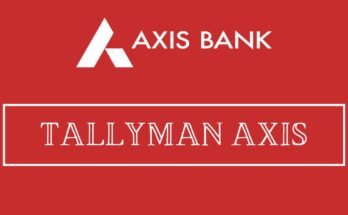Commercial mortgages are one of the most common types of business financing and offer a range of organisational benefits, such as:
- Owning your trading premise when the mortgage period ends.
- Working towards full ownership rather than paying rent.
- Reducing your property costs with manageable interest payments.
- Releasing capital through equity financing when required.
- Growing asset values with property appreciation.
- Simple financial forecasting with fixed mortgage payments.
Interest costs on commercial mortgages tend to be lower than for most other borrowing products, but there are several caveats to bear in mind.
For example, if your business isn’t eligible for a mortgage or the available agreements don’t align with your trading plans, you might find an alternative borrowing product favourable.
Different Types of Commercial Mortgage Finance
We tend to talk about the basic commercial mortgage advisors . This basic product works similarly to a residential version, financing the cost of buying a property to live in, or in this case, to trade from.
One of the common mistakes is to assume that a traditional mortgage is the only commercial financing option out there!
Commercial Mortgage Borrowing Explained
Our starting point is the standard commercial mortgage, secured against a property that is either the crux of the business or a premise used solely to operate from.
A commercial mortgage is suitable if you’re keen to switch from renting to owning your property or want to invest in buy to let commercial premises and need mortgage financing to help with the upfront costs.
Businesses can apply for a mortgage against properties they already own, like a remortgage model to unlock access to equity capital as a low-cost way to finance expansions or business developments.
The downside is that commercial mortgages come with a list of eligibility requirements.
Even if you have a strong trading history and impeccable credit record, a commercial mortgage may not be an option if the property itself doesn’t qualify.
Portfolio Commercial Mortgage Financing
Financing for portfolios works differently because you’re borrowing against two assets or more.
You can use mortgage financing to purchase additional portfolio residences, pay for renovation or development costs, or release equity to give you more financial freedom.
Portfolio values tend to be high, so the interest rates available can be even more competitive than standard commercial mortgages.
Commercial Bridging Loans
A bridge loan is so-called because it bridges the gap between mortgage financing and approval – where you need a funding solution quickly but haven’t yet been able to complete a mortgage deal.
Bridging finance can release equity and allow you to use that funding as a deposit against another purchase or to proceed with an investment while you’re waiting for a mortgage approval to arrive.
Development Finance for Commercial Enterprises
Companies looking to develop or redevelop new or existing properties often use development finance – a commercial mortgage normally won’t apply to premises that aren’t currently in a habitable state.
Development finance terms are tailored depending on the cost of the work and how you plan to repay the short-term loan but can cover a sizable proportion of the renovation expenses and all of the initial outlay cost.
Business Mezzanine Financing
Commercial mezzanine finance is like a hybrid product, blending debt and equity financing to provide a capital top-up to fund shortfalls in property projects with a high-cost value.
If you have funded most of your investment costs via a mortgage, mezzanine finance is a viable option to supplement your financing and ensure your project can proceed.
Finding Competitive Commercial Mortgage Alternatives
There’s no universally successful way to apply for a commercial mortgage or any competing products we’ve discussed here.
With thousands of lenders, terms and rates on offer, it’s wise to take your time to conduct thorough research and compare the pros and cons of each of the mortgage routes available to you.
Commercial mortgage lenders all have sets of policies and rules about who they will lend to and the qualifying metrics, so will usually assess your borrowing viability based on:
- Credit ratings for yourself and other business directors and owners.
- The cash flow situation within the company, including a financial overview and debt analysis.
- Projections showing expected revenues and profits over the coming months and years.
- Your net assets, balance sheet value, and what you can offer as security against your commercial mortgage.
- The business plan is crucial since it determines how realistic the underwriter thinks you are to continue keeping up with mortgage repayments.
Please get in touch if you’re torn between different commercial mortgage options or don’t know whether any of the products we’ve mentioned may be in your interests.
The Revolution Finance Brokers team is available on 0330 304 3040 or via email at info@revolutionbrokers.co.uk.
We’ll always be happy to steer you through the decision-making process to find the right financing product for your business.




